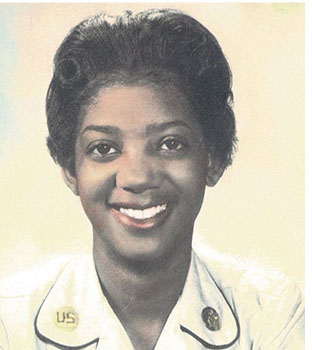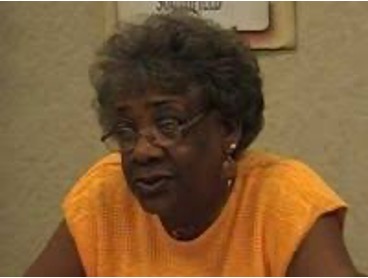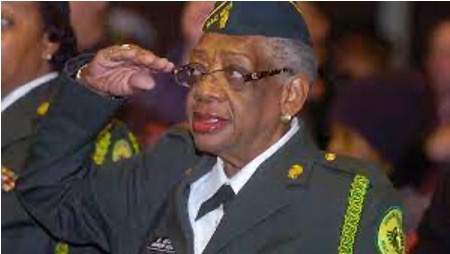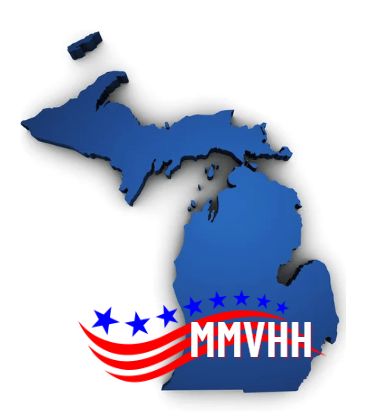


Evelyn Christine Kennedy was born on January 23, 1939, in Memphis, Tennessee, and moved to Detroit, Michigan, at a young age with her family. She enlisted in the United States Women’s Army Corps on January 31, 1961 when she was ready to serve her country. The Women’s Army Corps was retired only 17 years later in 1978. Kennedy enlisted in Detroit, Michigan at the Fort Wayne facilities. Prior to enlisting, she was unemployed and despite looking for employment, she was having no luck. She had already gone to school but wasn’t entirely sure what she wanted to do, she spoke with another woman who was already in the military and was encouraged to enlist for the benefits and the training. After Kennedy was inducted to the Women’s Army Corps, she left Fort Wayne in Detroit and was sent to Fort McClellan, Alabama, to complete her basic training. When Kennedy made her way to basic training she was the only African American woman to arrive at Fort McClellan in her group. Kennedy was able to quickly and seamlessly adjust to military life, recalling that growing up with strict parents helped to set her up for success in the military when it came to following orders. While at Fort McClellan, she struggled in her first week of basic training and wanted to go home, asking her recruiter “why did you get me into this.” However, Kennedy persevered and remained at Fort McClellan to complete her basic training. In an interview with the Library of Congress, Kennedy stated, “I always pride myself on ‘if I am going to start something, I am going to finish it.” She spent eight weeks at Fort McClellan where she was selected to be on the evening flag holding team, which at the time was a high honor. Kennedy felt that her time in basic training in Alabama helped her become a pretty good soldier, just following the flow of military life.
Once her basic training had been completed, Kennedy went on to Fort Benjamin Harrison in Indiana for six weeks to attend finance school. After completing her first section of finance school, she was selected to be part of the advanced finance course, totaling her time at Fort Benjamin Harrison to around twelve weeks. Out of around 30 people in her finance classes, Kennedy said that only four were women, and she was the only African American woman in the classes. Many of the people selected to attend the finance classes, including Kennedy, were based on their testing and any prior experience in the field. For example, Kennedy had taken classes in bookkeeping and accounting prior to entering the service. Kennedy enjoyed the finance classes and felt that she had learned a lot, recalling that the military finances were very different for her as she was not able to find a really good job for her in Detroit prior to enlisting. Kennedy looks back at her time in the military proudly, and holistically as a good experience for her and her growth as a person. Although Kennedy is proud and appreciative of her time in the military, it did not come without personal struggles, as many experience. For her, the most difficult thing about her time in the finance courses was being the only African American woman, and feeling like she didn’t really have a group to study for the classes with.
Once Kennedy completed her financial training at Fort Benjamin Harrison, she was sent to Fort Hood, Texas, where she arrived on July 4, 1961. At ford hood, she worked at the post finance office, where she was selected to be a Commercial Accounts Specialist. In this positions, she paid the Army bills according to their contracts with vendors, she also helped pay the troops at the end of each month. At Fort Hood, Kennedy was once again the only African American woman in the finances department. Despite always being the only African American woman, Kennedy felt that she was very accepted in the Army as this was a time when the military was beginning to really be integrated, and she felt that people were very accepting of the changes. While at Fort Hood, she attended Baylor College night classes for a little while, but she spent much of her free time with other acquaintances she had made on base. Kennedy spent her entire military career at Fort Hood and served as a Barracks Sargeant for a period of time, ensuring the barracks were always clean and everyone was where they should be.
In her interview with Library of Congress, Kennedy stated that at the time there was still a stigma around women being in the military and many of the men still held the belief that they were only there for prostitution or that they were alcoholics. The stigmas Kennedy experienced not only as a woman, but as a woman of color in the military, were harmful, but she remained focused on her service and her work. Kennedy did state that she did not like Texas because it was still very segregated, recalling a time when some members of her post went to a beach, and someone told them they couldn’t swim there. Kennedy remembered telling this person that she was in the military and could swim there, however her friend grabbed her and said they should leave while she could still live to tell the story. Kennedy entered the service with a goal, which was to come out of service and use her GI benefits when she was done. Although this was her goal, she gained many important skills that she continued to use in her civilian life, to the point that her children had to remind her “mom, you’re not in the military anymore.”
When Evelyn Kennedy was discharged from the military, she returned home to Detroit, where she began to readjust to civilian life. It was a difficult adjustment for her as she tried to get back into the groove of doing the things she had done before joining the military. Kennedy had to adjust to not having the amount of freedom she had gotten used to while in the military when she returned home with her strict parents. She used her GI bill for school and found employment with Chrysler Motors in October of 1963. Kennedy continued to work for Chrysler for eleven years while in the reserve, where she made Staff Sargeant. She ultimately retired from the reserve when her and her husband got married, and they had three children. Kennedy tried to rejoin the reserve after having her last child, but she was beyond the age cutoff at that point, so she never went back to serving. Throughout her civilian life, she continued to serve her community in many ways. Kennedy served as the Secretary for the National WAC Veterans Association – Army Women United, the National Community Projects Chairperson, and with the National Honor Guard for 25 years. She has spent time volunteering at the John Dingell VA Medical Center in Detroit and has participated in many VA-sponsored events as the Deputy Veteran Service Officer for the VA’s Center for Development and Civic Engagement. For her work in the community, Kennedy has received a Resolution and Notable Female Service Certificate, a Distinguished Veteran Award, the Legion of Honor Humanitarian Award, and the Veteran of Honor Award.
